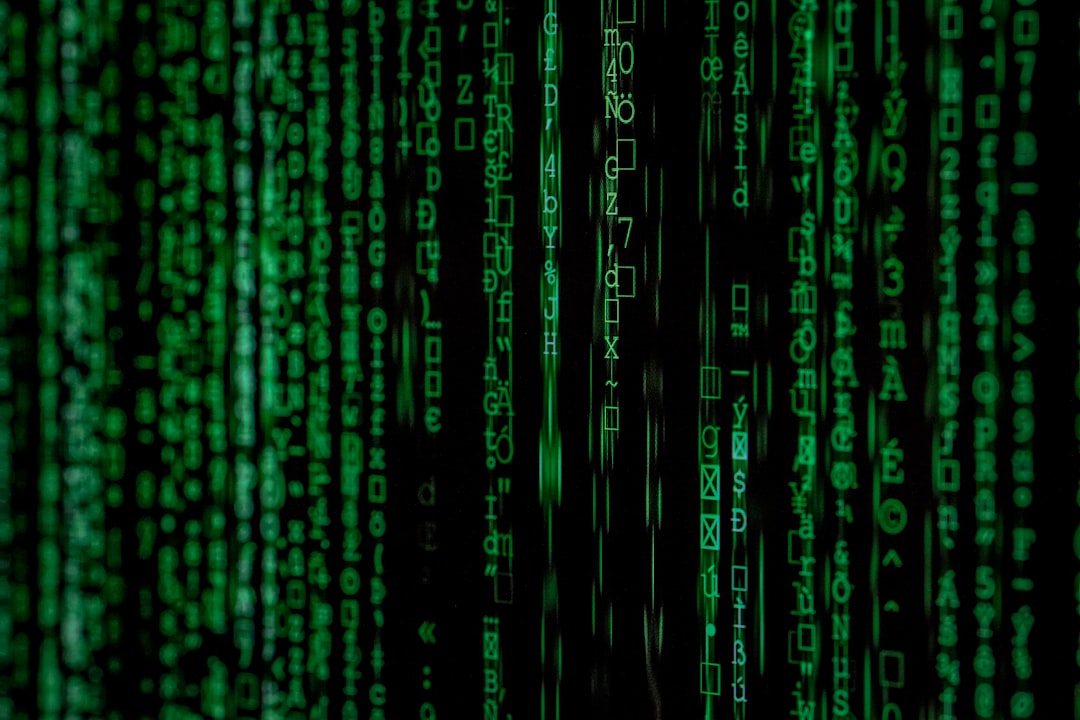The notion that reality may be a simulation or a shared illusion has captivated thinkers, scientists, and philosophers for centuries. This idea posits that what individuals perceive as their tangible existence might not be the ultimate truth but rather a construct, a sophisticated illusion crafted by unseen forces or advanced technologies. The implications of such a perspective challenge the very foundations of human understanding, prompting questions about existence, consciousness, and the nature of reality itself.
As society progresses, the exploration of this concept becomes increasingly relevant, especially in an age where technology blurs the lines between the real and the artificial. In this context, the idea of reality as a simulation invites individuals to reconsider their perceptions and beliefs. It encourages a deeper inquiry into the nature of existence and the mechanisms that shape human experience.
By examining this concept, one can explore the philosophical, scientific, and psychological dimensions that underpin it, ultimately leading to a richer understanding of what it means to be human in a potentially simulated universe.
Key Takeaways
- The concept of reality as a simulation or shared illusion challenges traditional notions of what is real and raises questions about the nature of existence.
- The idea of reality as a simulation or shared illusion has a long history, with roots in ancient philosophy and religious beliefs, and has been explored in various forms by thinkers throughout the ages.
- The philosophical and scientific implications of reality as a simulation or shared illusion raise profound questions about the nature of consciousness, the limits of human perception, and the potential for multiple layers of reality.
- Technology, such as virtual reality and artificial intelligence, has played a significant role in shaping our understanding of reality and has contributed to the idea that our own reality could be a simulation.
- Perceiving reality as a simulation or shared illusion has psychological and cognitive implications, including the potential for feelings of disconnection, existential angst, and a reevaluation of the nature of personal identity.
The history of the idea of reality as a simulation or shared illusion
The roots of the idea that reality may be an illusion can be traced back to ancient philosophical traditions. In Eastern philosophies, such as Buddhism, the concept of Maya refers to the illusionary nature of the world, suggesting that what is perceived is not the ultimate truth. Similarly, Western philosophy has grappled with this notion through figures like Plato, whose Allegory of the Cave illustrates how individuals may be trapped in a world of shadows, mistaking them for reality.
These early explorations laid the groundwork for contemporary discussions about the nature of existence and perception. In more recent history, the advent of technology has propelled this idea into mainstream discourse. The rise of computer science and virtual reality has led to new interpretations of existence as potentially being a simulation.
Notably, philosopher Nick Bostrom’s 2003 paper posited that if advanced civilizations could create highly realistic simulations, it is plausible that humanity might already be living in one. This hypothesis sparked widespread debate and further investigation into the implications of living in a simulated reality, bridging ancient philosophical inquiries with modern technological advancements.
The philosophical and scientific implications of reality as a simulation or shared illusion

The philosophical implications of viewing reality as a simulation are profound. It raises fundamental questions about consciousness, free will, and the nature of existence itself. If reality is indeed a simulation, then what does that mean for individual agency?
Are humans merely players in a game designed by an advanced intelligence? This line of questioning challenges traditional notions of autonomy and responsibility, suggesting that individuals may not be as free as they believe. From a scientific perspective, the simulation hypothesis invites exploration into the nature of physical laws and the universe’s structure.
If reality is a construct, then understanding its underlying code could lead to groundbreaking discoveries about existence. This perspective aligns with certain interpretations of quantum mechanics, where observation appears to influence reality at a fundamental level. The intersection of philosophy and science in this context creates fertile ground for interdisciplinary dialogue, pushing the boundaries of human understanding.
The role of technology in shaping our understanding of reality
| Technology | Impact on Understanding of Reality |
|---|---|
| Virtual Reality | Provides immersive experiences that can alter perception of reality |
| Augmented Reality | Overlays digital information onto the physical world, changing how we perceive our surroundings |
| Internet and Social Media | Shapes our understanding of reality through the information and narratives we encounter |
| Artificial Intelligence | Can influence decision-making and shape our understanding of reality through personalized content and recommendations |
| Data Visualization | Helps us make sense of complex information and can influence our understanding of reality based on how data is presented |
Technology plays a pivotal role in shaping contemporary perceptions of reality. The rapid advancement of virtual and augmented reality technologies has blurred the lines between what is real and what is simulated. As individuals immerse themselves in digital environments that mimic real-world experiences, they are confronted with questions about authenticity and existence.
These technologies not only enhance entertainment but also challenge users to reconsider their understanding of reality itself. Moreover, artificial intelligence and machine learning have introduced new dimensions to this discussion. As machines become increasingly capable of simulating human behavior and thought processes, the distinction between human and artificial intelligence becomes less clear.
This evolution raises ethical questions about consciousness and identity while prompting society to reflect on what it means to be human in an age where technology can replicate aspects of human experience.
The psychological and cognitive aspects of perceiving reality as a simulation or shared illusion
The psychological implications of perceiving reality as a simulation are significant. Cognitive dissonance may arise when individuals grapple with the idea that their lived experiences could be mere illusions. This dissonance can lead to existential crises or a sense of detachment from one’s surroundings.
For some, embracing the notion of a simulated reality may provide comfort, offering an explanation for life’s complexities and uncertainties. Additionally, cognitive biases play a crucial role in how individuals interpret their experiences. The tendency to seek patterns and meaning can lead people to perceive coincidences as signs or messages from a higher power or intelligence behind the simulation.
This phenomenon highlights the human inclination to find purpose within chaos, reinforcing the idea that perception shapes reality in profound ways.
The potential consequences of living in a simulated or shared illusion reality

Living in a simulated or shared illusionary reality could have far-reaching consequences for society. If individuals come to accept that their experiences are not entirely authentic, it may lead to apathy or nihilism. A sense of disconnection from reality could diminish motivation and engagement with life, as people might question the value of their actions within an illusory framework.
Conversely, recognizing life as a simulation could inspire creativity and innovation. If individuals understand that they are participants in a constructed environment, they may feel empowered to reshape their experiences and challenge societal norms. This perspective could foster resilience and adaptability, encouraging people to explore new possibilities within their perceived limitations.
The debate between proponents and skeptics of the idea of reality as a simulation or shared illusion
The debate surrounding the simulation hypothesis is vibrant and multifaceted. Proponents argue that advancements in technology support the plausibility of living in a simulated reality. They point to developments in virtual reality and artificial intelligence as evidence that humanity is on the brink of creating its own simulations, thus raising questions about whether an advanced civilization has already achieved this feat.
Skeptics counter these claims by emphasizing the lack of empirical evidence supporting the simulation hypothesis. They argue that while it is an intriguing philosophical proposition, it remains speculative without concrete proof. Additionally, skeptics often highlight the importance of grounding discussions about reality in observable phenomena rather than abstract theories that may lead to unfounded conclusions.
The ethical considerations of living in a simulated or shared illusion reality
The ethical implications of living in a simulated or shared illusionary reality are complex and multifaceted. If individuals are aware that they exist within a simulation, questions arise regarding consent and autonomy. Are participants in this simulation given agency over their experiences?
If not, who bears responsibility for their actions within this constructed environment? Furthermore, ethical dilemmas emerge when considering the treatment of sentient beings within simulations. If artificial intelligences develop consciousness within these environments, ethical considerations regarding their rights and treatment become paramount.
The impact of cultural and societal factors on our perception of reality
Cultural and societal factors significantly influence how individuals perceive reality. Different cultures have unique beliefs about existence, spirituality, and consciousness that shape their understanding of what is real. For instance, indigenous cultures often emphasize interconnectedness with nature and community, fostering a holistic view of existence that contrasts with more individualistic perspectives prevalent in Western societies.
Moreover, societal narratives play a crucial role in shaping collective perceptions of reality.
As technology continues to evolve, these narratives will likely adapt, further influencing perceptions of reality in ways yet to be fully understood.
The intersection of spirituality and the concept of reality as a simulation or shared illusion
The intersection between spirituality and the concept of reality as a simulation offers rich terrain for exploration. Many spiritual traditions emphasize the idea that physical existence is transient or illusory, echoing themes found in contemporary discussions about simulations. For instance, concepts such as enlightenment or awakening often involve transcending ordinary perceptions to grasp deeper truths about existence.
This convergence invites dialogue between science and spirituality, challenging rigid boundaries between empirical inquiry and metaphysical exploration. As individuals seek meaning in an increasingly complex world, integrating spiritual insights with scientific understanding may provide pathways toward greater awareness and connection with both self and others.
The future of our understanding of reality as a simulation or shared illusion
As humanity continues to grapple with the concept of reality as a simulation or shared illusion, it becomes evident that this inquiry will shape future philosophical discourse, scientific exploration, and cultural narratives. The interplay between technology, psychology, ethics, and spirituality will undoubtedly influence how individuals perceive their existence in an ever-evolving landscape. Ultimately, embracing this complexity may lead to deeper insights into consciousness and existence itself.
Whether viewed through the lens of skepticism or belief in simulations, exploring these ideas encourages individuals to question their assumptions about reality while fostering curiosity about what lies beyond conventional understanding. As society navigates these profound questions, it may uncover new dimensions of existence that enrich human experience and understanding for generations to come.
In the ongoing debate about whether reality is a simulation or a shared illusion, an intriguing perspective is offered in an article on X File Findings. This article delves into the philosophical and scientific discussions surrounding the nature of reality, exploring theories that challenge our conventional understanding of existence. For those interested in further exploring these thought-provoking ideas, you can read more about it in the related article on their website. Check out the full discussion by visiting X File Findings.
😲 WATCH THIS! The Secret Data That Proves Our Reality Is A Shared Illusion
FAQs
What is the concept of reality as a simulation or shared illusion?
The concept suggests that the reality we experience may not be as real as we perceive it to be. It proposes that our reality could be a simulated environment or a shared illusion created by advanced technology or a collective consciousness.
What are the arguments for reality being a simulation or shared illusion?
Some proponents of this concept argue that advancements in technology, such as virtual reality and artificial intelligence, demonstrate the potential for creating realistic simulated environments. Others point to philosophical and metaphysical theories that question the nature of reality and consciousness.
What are the counterarguments against the idea of reality as a simulation or shared illusion?
Critics of this concept argue that there is no concrete evidence to support the idea that our reality is a simulation or shared illusion. They also point to the complexity and richness of human experiences as evidence of the authenticity of reality.
How does this concept relate to scientific and philosophical discussions about reality?
The concept of reality as a simulation or shared illusion intersects with scientific discussions about the nature of the universe, as well as philosophical inquiries into the nature of consciousness, perception, and existence.
What are the implications of considering reality as a simulation or shared illusion?
If reality were to be proven as a simulation or shared illusion, it would have profound implications for our understanding of existence, consciousness, and the nature of reality itself. It could also impact our ethical, moral, and existential beliefs and practices.
